Ata-ul-Haye Nasir, Al Hakam
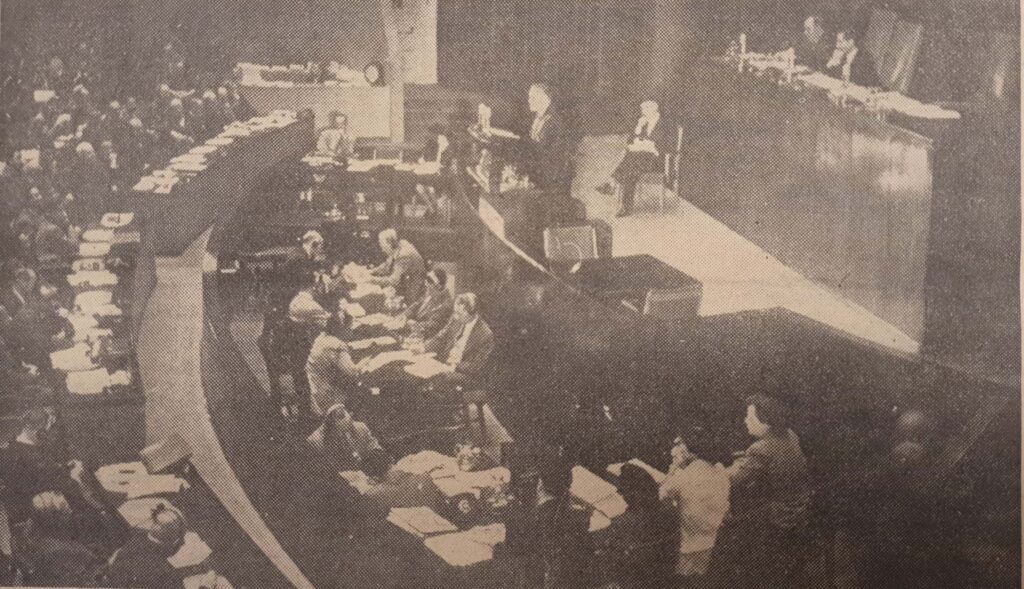
Jamaat-e-Ahmadiyya has always been at the forefront to advocate the rights of Muslims. Recently, the Palestine-Israel conflict has erupted intensively, but it is not a new issue. It has a long history, and history is evident that Jamaat-e-Ahmadiyya has always spoken up for the rights of oppressed Palestinians.
When the partition of Palestine was under discussion in the United Nations, Hazrat Chaudhry Sir Zafrulla Khanra presented the true aspects of the issue in the most impressive and persuasive manner.
Hazrat Sir Muhammad Zafrulla Khanra himself states that as Pakistan had become a member of the United Nations just a few days before his first speech, the Arab delegations did not give any importance to the Pakistani delegation, and they seemed to have no expectations from us on this issue. (Tahdis-e-Nemat, pp. 520-521)
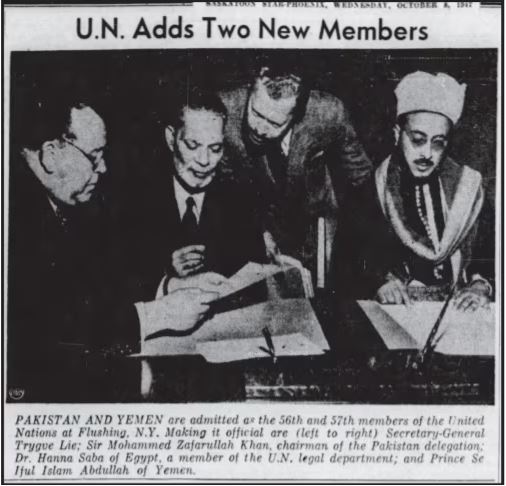
After his speech on 7 October 1947, the Arabs were greatly pleased and overjoyed, as it represented their emotions and point of view in the best possible manner.
A top Indian daily newspaper, The Statesman, wrote the next day in its editorial:
“For the first time, the voice of Pakistan was heard in the counsels of the United Nations on a burning topic of worldwide significance when the leader of this country’s delegation, Chaudhry Zafarullah Khan, addressed the United Nations Palestine Committee at Lake Success on Tuesday. It was a telling speech which tore into shreds the specious pleas put forward by the advocates of the partition of Palestine.
“Chaudhry Zafarullah did not merely indulge in rhetoric when he described the partition plan as ‘physically and geographically a monstrosity’, he proceeded to prove this by unassailable arguments.
“Answering the contention that the migration of more Jews into Palestine should be permitted because the displaced Jewish people desired to go to that country, Pakistan’s spokesman asked whether the Americans would consent to relax or abrogate their own immigration laws if displaced persons of various other nationalities desired to enter the United States and settle there?
“Would America, he further asked, agree to take in the five million displaced persons of the Punjab if they desired to leave the scene of their suffering and cross over to the United States.
“We have little doubt that the Arabs will rejoice to find the voice of Pakistan so powerfully raised in the United Nations in defence of their cause. The addition of the independent sovereign state of Pakistan to the comity of free Muslim peoples of the World is already beginning to have its effect on international affairs.” (The Statesman, 8 October 1947)
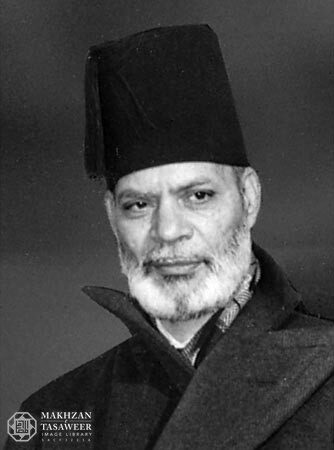
Then, the same newspaper quoted an Arab spokesman, in its 11 October 1947 issue:
“It was the most brilliant and exhaustive survey of the Arab case regarding Palestine that I ever heard.”
Hazrat Sir Muhammad Zafrulla Khanra argued:
“The United Nations cannot subscribe to the principle that a racial or religious minority, whether arising from national development or created as a result of immigration, can insist upon the breaking up of a homeland or shatter the political, geographical and economic unity of a country without the consent and against the wishes of the majority.” (TG Fraser, Partition in Ireland, India and Palestine: Theory and Practice, New York: St. Martin’s Press [1984], p. 176)
Dr Chaim Weizmann – a Zionist leader who became the first president of Israel – had cited the partition of the Indian subcontinent as a precedent for Palestine’s partition.
While negating this point, Hazrat Sir Zafrulla Khanra stated during his speech of 7 October 1947, that it was wrong to compare these two matters. Hazrat Sir Zafrullah Khanra argued that even though the majority party of the Indian subcontinent [Hindus] was not eager, both parties eventually agreed to the partition of India, and if both Jews and Arabs agreed that partition was the only solution, Pakistan would be the first country to vote for such a course. In India, the Muslim minority was an integral part of the population, while in Palestine, a minority was created artificially by settling Jews against the express will of the people. (SM Burke, Pakistan’s Foreign Policy: An Historical Analysis, London: Oxford University Press [1973], p. 138)
During his UN speech of 28 November 1947, Hazrat Sir Zafrulla Khanra stated:
“This is a solemn moment, solemn in the history of the world, in the history of this great – let us hope, at least – great organisation. The United Nations is today on trial. The world is watching and will see how it acquits itself – again, perhaps, not so much from the point of view of whether partition is approved or not approved, but from the point of view of whether any room is to be left for the exercise of honest judgement and conscience in decisions taken upon important questions […]
“It is said that if the partition is not accepted, there would be no room left for a solution. On the contrary, if the partition is accepted, fatal steps will have been taken. The Arabs and the Jews will have been set by the ears and never again will there be any chance of bringing them together. Far too many unfinished vendettas will then bar the way.
“If you delay and do not take the fatal step, you still leave open to the Arabs and the Jews the chance of a conciliatory solution through which they combine and work. It is not that if you do not take a final decision today, your jurisdiction to decide anything is barred. It means that neither of these two solutions is acceptable and that something else must be found.
“The responsibility remains with you. Do not throw away that chance. Do not dose a door that may not be opened again. The United Nations must find a solution which is not only just and fair, but which has the best chance for success as regards the largest number of Jews and Arabs in Palestine.”
At the end of his speech, he stated:
“The representative of the United States made reference to the prayer and the wish that I expressed at the end of my statement to the Ad Hoc Committee. I again utter it humbly, sincerely, and earnestly, ‘May He Who controls all hearts and knows their innermost thoughts and designs, Who alone can appraise the true value and foresees the consequences of all human action, in His Grace and Mercy so guide our judgment that what we decide here today shall promote and foster the peace, prosperity and welfare of all His creatures, Jews, Arabs, and Gentiles alike, and shall redound to His Glory forever.’
“[Arabic] Our last cry is; All praise is due to God, the Lord of all the Universes.” (UNISPAL, 2nd Sess., A/PV.126, UN Doc [28 November 1947])
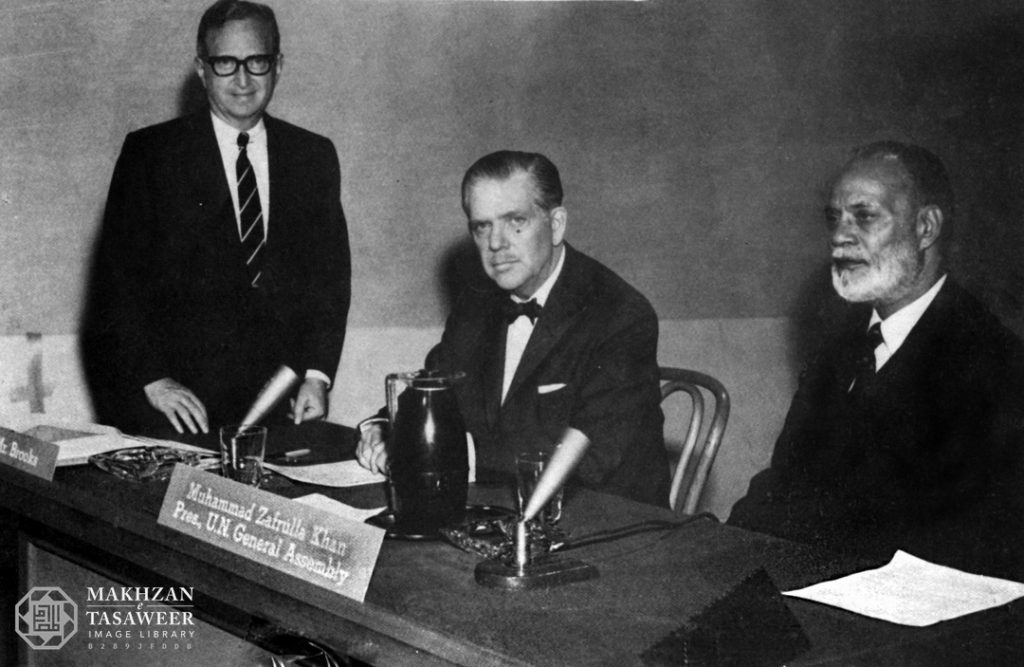
PR Kumaraswamy, in his piece, Beyond the veil: Israel-Pakistan relations, stated:
“Pakistan was represented by its able and articulate Foreign Minister, Sir Zafrulla Khan (1893-1985). Capitalizing on his legal background, he vehemently argued that the UN had no legal or juridical authority to partition Palestine […] Zafrulla Khan thus became the most articulate opponent of the partition plan. In the words of one Israeli official, he ‘was undoubtedly one of the ablest and most impressive delegates present from any country.’” (Beyond the Veil: Israel-Pakistan relations, Memorandum 55, Jaffee Center for Strategic Studies, Tel Aviv University [2000], p. 22)
In reference to the brilliant advocacy of the Palestine cause by Sir Zafrulla Khanra at the United Nations, Khwaja Hasan Nizami wrote in a letter addressed to a Pakistani, dated 6 March 1948:
“The fact of the matter is that Chaudhry Zafrulla Khan has done a job for which 80 crore [800 million] Muslims of the World owe him a debt of gratitude. I never hesitate to mention this fact to all, the intelligentsia and the common people alike. Even in my speeches at big public gatherings. I freely express this view.”
Faisal al Saud wrote a letter to Hazrat Sir Zafrulla Khanra on 5 May 1948 and thanked him:
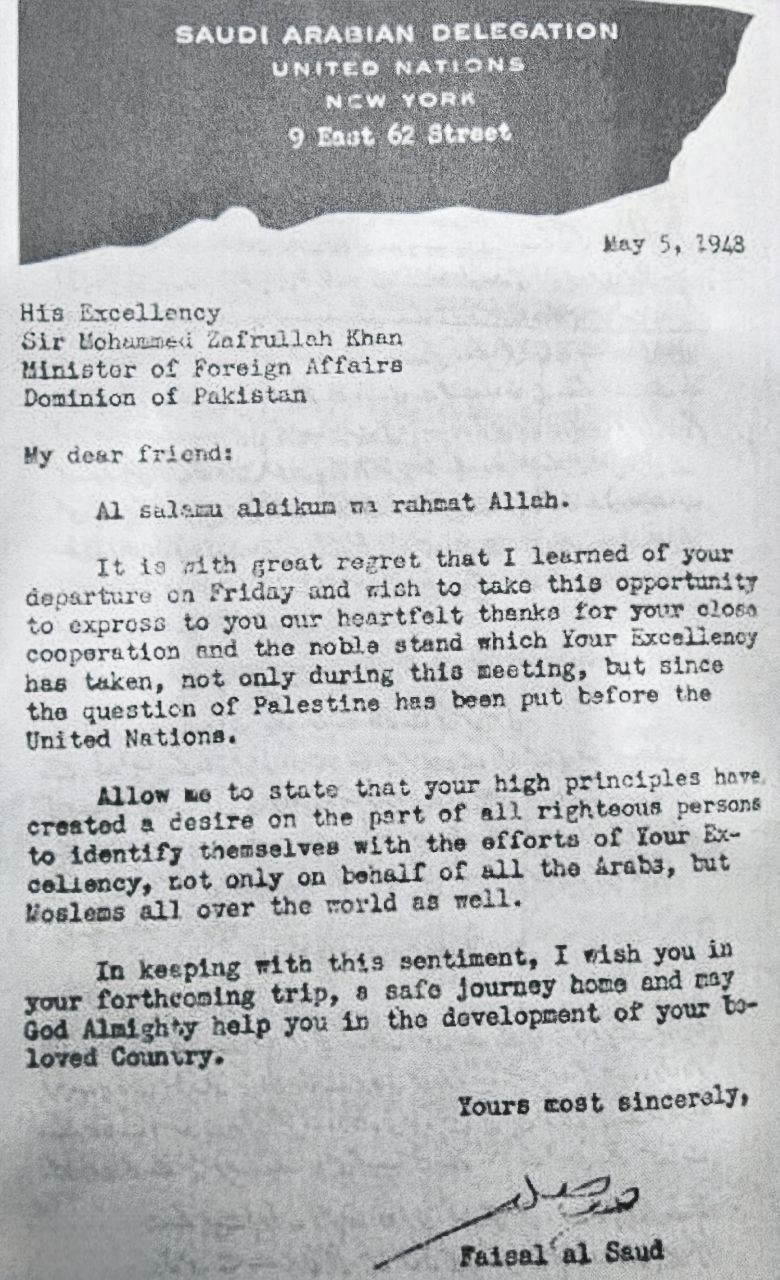
“It is with great regret that I learned of your departure on Friday and wish to take this opportunity to express to you our heartfelt thanks for your close cooperation and the noble stand which Your Excellency has taken, not only during the meeting, but since the question of Palestine has been put before the United Nations.
“Allow me to state that your high principles have created a desire on the part of all righteous persons to identify themselves with the efforts of Your Excellency, not only on behalf of all the Arabs but Moslems all over the world as well.”
In May 1948, Hazrat Chaudhry Zafrulla Khanra told the British Secretary of State for Foreign Affairs, Ernest Bevin, that Pakistan would never recognise the state of Israel. This caused a stir in the international media, especially in New York.
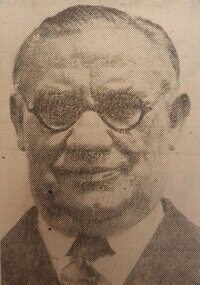
Al Sayed Ahmad Asim – Sajjada Nashin of Dargah Hazrat Sheikh Abdul Qadir Gilani, Baghdad – wrote in a letter to Hazrat Chaudhry Zafrulla Khanra, dated 5 July 1948:
“I avail of this opportunity to thank you from the core of my heart, on my behalf as well as on behalf of the family of Hazrat Ghaus-ul-Azam, for the great Jihad you waged in a purely Islamic spirit in support of the Holy Land of Palestine before the United Nations. I earnestly pray that Almighty Allah may grant you full recompense for your services and enable you to further serve the cause of Islam.”
Abdul Hamid Al-Kaatib stated in his article published in a magazine Al-Arabi:
“Muhammad Zafrulla Khan is the person who proved to be the champion in defence of Palestine’s rights. While defending the rights of Arabs in regard to Palestine, he used all qualities of his God-gifted speaking power and legal and political capability. The pulse of his speech rhythmed with the real Islamic spirit.” (Al-Arabi, June 1983)
When the issue of Palestine was still fresh, the mufti of Palestine issued a fatwa (verdict) against Hazrat Chaudhry Zafrulla Khanra, and Jamaat-e-Ahmadiyya. Upon this, General Abdul Rahman Hassan Azzam Pasha, who was the Secretary-General of the Arab League, stated:
“We know it very well, that Zafrulla Khan is a Muslim with respect to his words and character. He had been successful all around the world in defending Islam, and it had been his distinct feature that he successfully supported every point of view which had been adopted in defence of Islam. For this, his respect has instilled in people’s hearts, and the hearts of the Muslim world are filled with thankfulness for him.” (Jaridah Al-Akhbar Al-Qahiriyyah, 23 June 1952)
Former vice-chancellor of Karachi University, Dr Ishtiaq Hussain Qureshi stated in his book, The Muslim Community in Indo-Pak Subcontinent (p. 98) that the Arabs found the most capable means to present their Palestine case in the United Nations in the person of Sir Muhammad Zafrulla Khanra.
Upon the demise of Hazrat Sir Zafrulla Khanra, many newspapers published reports in which his services for Palestine and the Arab world in general, were appreciated.
Daily Nawa-i-Waqt stated on 2 September 1985:
“Quaid-e-Azam sent him to the United Nations as leader of the delegation for representing Pakistan on the issue of Palestine, where his well-argued speeches created a significant place for Pakistan in the hearts of the Arabs.”
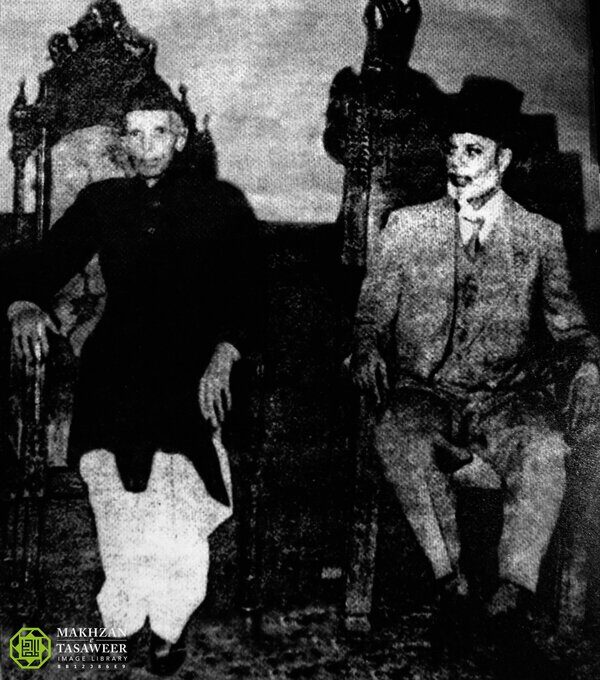
The Muslim of 2 September 1985 stated that in 1947, he was specially nominated by Quaid-e-Azam to represent Pakistan in the United Nations, where he brilliantly advocated the case of Palestinian Muslims, which made the Arab world thankful to him.
The Dawn of Karachi, 3 September 1985, stated in its editorial:
“He earned the abiding respect and admiration of the Arab and other Muslim nations as a defender of their interests.”
Jang of 3 September 1985 reported a session of Federal Cabinet of Pakistan:
“The cabinet expressed great grief upon the demise of Chaudhry Muhammad Zafrulla Khan […] The cabinet paid tribute to him for presenting the cause of Palestine and the third world in International institutions and conferences, and his services in the International Court of Justice.”
Then, the Daily Nawa-i-Waqt of Rawalpindi and Lahore wrote on 3 September 1985:
“In addition to the Kashmir issue, the way he presented the point of view of Pakistan in advocating the freedom and sovereignty for Palestine and many other Arab countries (Morocco, Tunisia and Libya etc.), is still being appreciated in the Arab countries.”
The Daily Jang of Rawalpindi wrote in its editorial on 4 September 1985:
“His services in relation to the Palestine issue are also unforgettable.”
On 6 September 1985, Jang (Lahore) reported:
“Syria’s acting ambassador [to Pakistan] Isa Suleman stated in his message on behalf of the president Hafez al-Assad and the Syrian government, that the Syrian government immensely value all of his [Sir Zafrulla Khan’sra] efforts which he exerted for defending the rights of Arabs and specifically in regard to the dispute of Palestine.”
Fadhil Jamali, a former foreign minister of Iraq, stated:
“In fact, it was not possible for any Arab, however capable and competent he may be, to serve the cause of Palestine in a manner in which this distinguished and great man dedicated himself. What was the result of the debate in the United Nations is another matter. But, it must be acknowledged that Mohammad Zafrulla Khan occupies a pre-eminent position in defending the Palestinians in this dispute. We expect from all Arabs and followers of Islam that they will never forget this great Muslim fighter.” (Al-Sabah of Tunisia, 10 October 1985)
In a personal tribute, King Hussein bin Tallal of Jordan said:
“He was indeed a champion of the Arab cause and his ceaseless efforts whether among the Muslim and non-aligned countries or at the International Court of Justice will remain forever a shining example of a great man truly dedicated to our faith and civilization.” (The Review of Religions, Sept-Oct 1986, p. 6)
These were just a few glimpses of the appreciation Hazrat Sir Chaudhry Muhammad Zafrulla Khanra received for his great services for the cause of justice for Palestine.
His services, however, were not limited to Palestine only. He advocated the rights of many Arab countries. That created immense respect for his country – Pakistan – in the eyes of the Arab Muslims.
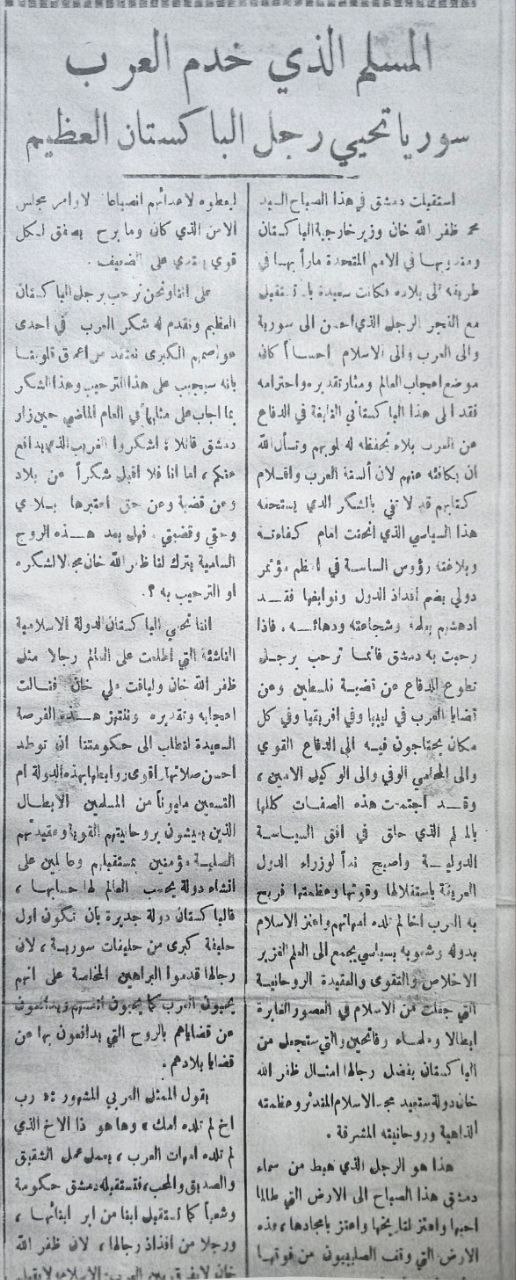
Alas, his own country did not value him later, so much so that today, some ignoramuses even label him as a “traitor” of Pakistan. We shall let the readers be the judge.
May Allah the Almighty remove all suffering of the Palestinian people and may true justice prevail in the world. Amin.

